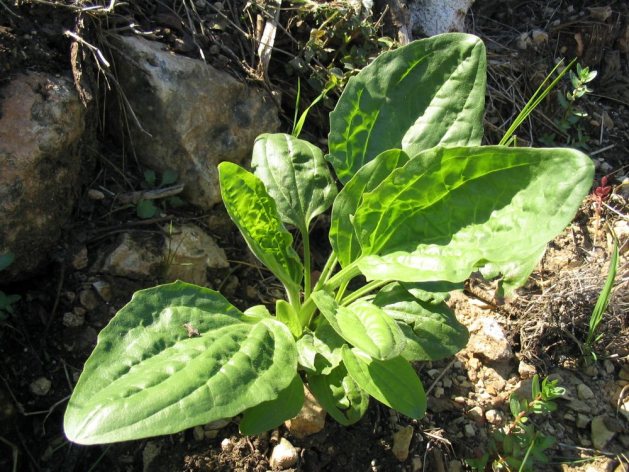Difference between revisions of "Translations:AY Honors/Camping/Ten edible wild plants/14/en"
m (FuzzyBot moved page Translations:Adventist Youth Honors Answer Book/Camping/Ten edible wild plants/14/en to Translations:AY Honors/Camping/Ten edible wild plants/14/en without leaving a redirect: Part of translatable page "Adventist Youth Honors Answer Book/Camping/Ten edible wild plants") |
(Importing a new version from external source) |
||
| Line 1: | Line 1: | ||
| − | {{: | + | {{:AY Honors/Edible Wild Plants/Plantain}} |
Latest revision as of 15:45, 7 September 2021
Plantago Major, or Broadleaf Plantain
Description: The Broadleaf Plantain or Greater Plantago (Plantago major) is a member of the plantago family, Plantaginaceae. In North America, this plant is primarily a weed, though it is edible and is used in herbal medicine. The plant is native to Europe, and is believed to be one of the first plants to naturalize in the colonies.
This plant does best in compacted soils, and hence is sometimes called "roadweed". It is commonly found on field boundaries as it is tolerant to pesticides and herbicides. It is wind-pollenated, and a cause of summer allergies when in flower.
Where found: Common lawn weed found throughout
Availability: Best in Early Spring, also usable in Summer and Fall, but tough and stringy.
Use: Crushed leaves can be applied directly to the skin to stop bleeding, bee stings and insect bites. Psyllium seeds are a bulk laxative. The young leaves are delicious raw in salads. In summer and fall the leaves can be eaten when boiled as greens.

